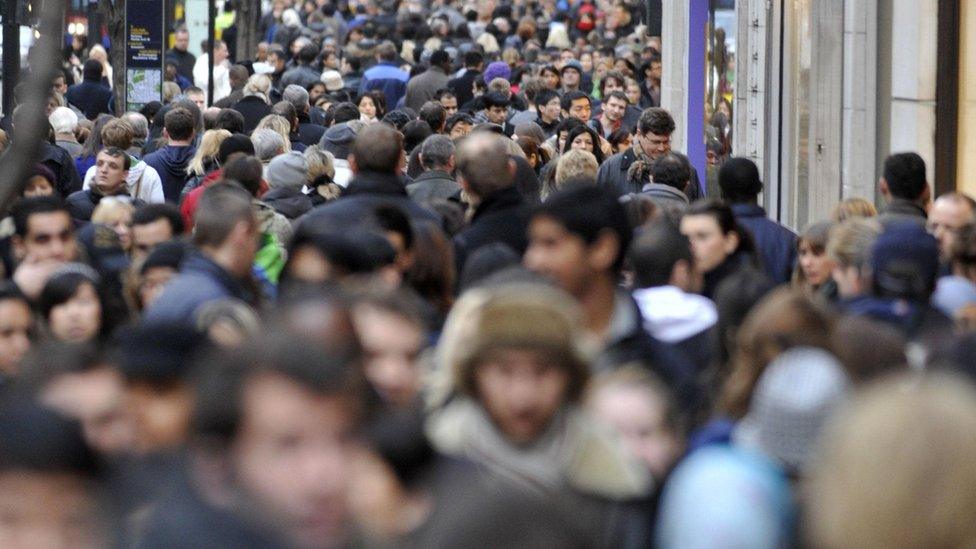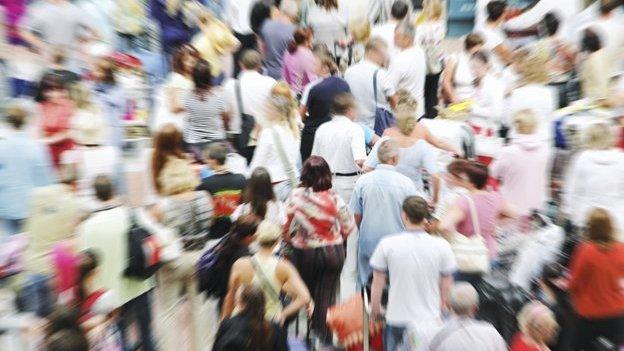UK population 'to top 70 million in 12 years'
- Published

The UK population is set to increase by the size of Sweden in the next 25 years
The UK population is to increase beyond 70 million in the next 12 years, official projections suggest.
The Office for National Statistics said the population was expected to increase by 4.4 million in the next decade, before reaching 70 million in 2027.
That increase is roughly the size of the Irish Republic.
The population is projected to grow by 9.7 million over the next 25 years, to 74.3 million. Latest figures show there are 64.6 million people in the UK.
The statistics predict an ageing population, with some 29.5% of people aged over 60 by 2039 - up from 23.2% this year.
By then, more than one in 12 UK people are expected to be aged 80 or over.
UK population to reach 70m by 2027
The Office for National Statistics (ONS) said its latest projections assume that more people will come to live in the UK than emigrate, accounting for about half of the projected population increase.
The remainder is attributed to births outnumbering deaths.
Projections were also revised upwards in the latest figures. The population estimate for 2024 is now 249,000 more than the previous projection in 2012.
Population growth
As of June 2014 there were
64,596,800
People living in the UK
491,100
more than the previous year
-
259,700 added from net migration
-
226,200 from natural growth
-
25% of all births in 2013 were to mothers born outside the UK
The overall trend is "very similar" to past figures, said Prof Christian Dustmann, director of the Centre for Research and Analysis on Migration at University College London.
"What we see in many European countries, in particular the larger economies such as Germany, is actually a trend in the opposite direction," he said.
"Population is decreasing in Germany, as it is in Italy or Spain. That puts these countries in a very difficult situation.
"[When] populations are decreasing, you're dealing with a shrinking working-age population, which basically has to be confronted with an increasing ageing population which is not productive any more."
In the UK, where migration is contributing to population growth, the challenge was to ensure immigrants paid more in taxes than they cost in public services, he said.
'Pressure on services'
"An increase in population means a larger economic base - part of the GDP growth we have seen is due to immigration," he said.
Prof Dustmann said one reason the ONS produces these figures is to prepare policy makers for "future demands" - and he said they should "clearly be prepared to expand public services".
Dr Jo Michell, of the University of the West of England, said the population rise would increase the pressure on public services.
"It will have an impact on public services such as health and education, services which are already under pressure because of cuts in government services and cuts which are planned for the next five years," he said.
"So the government should consider whether these cuts are appropriate at such a time."
- Published14 August 2015

- Published25 June 2015
